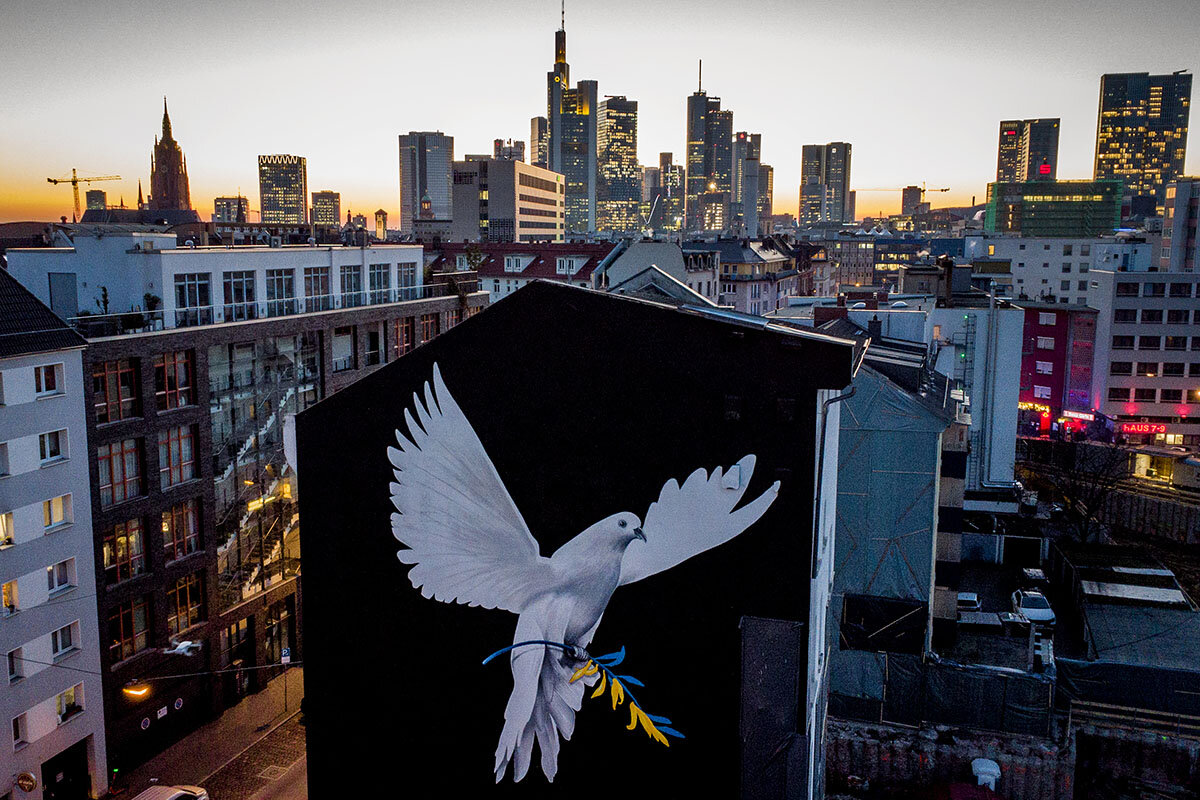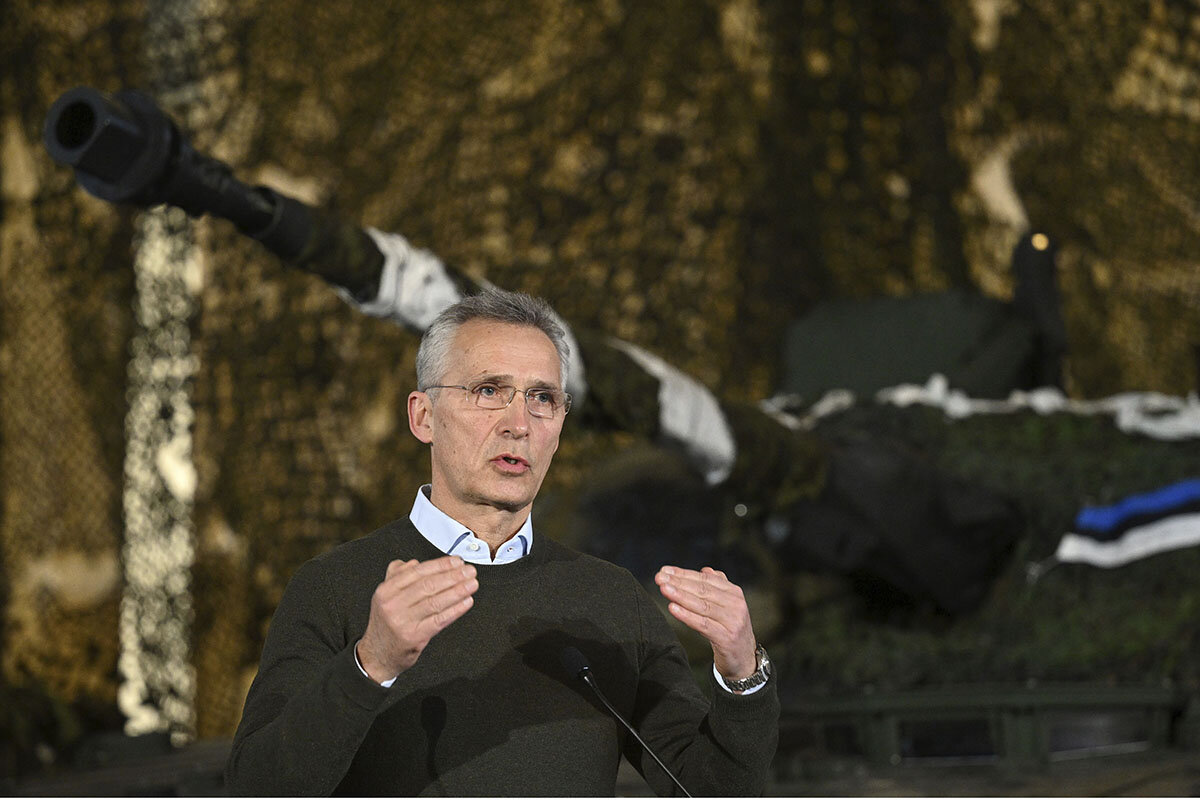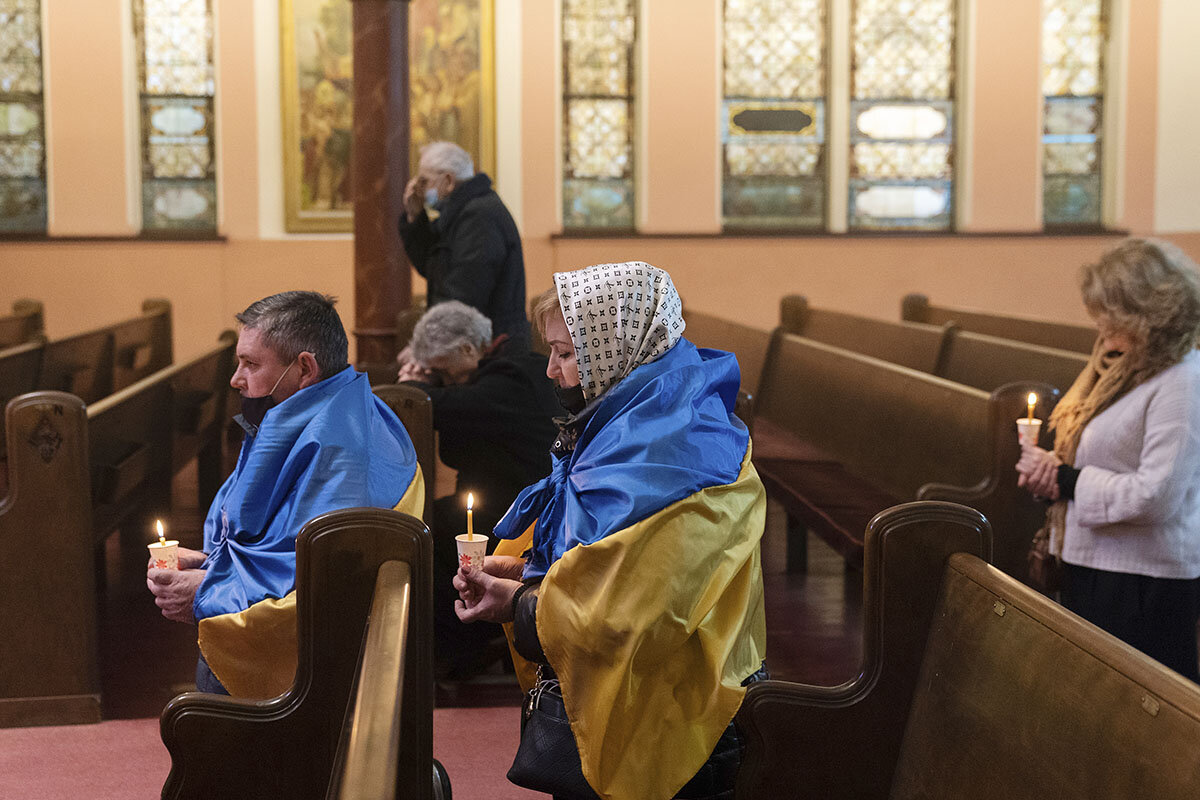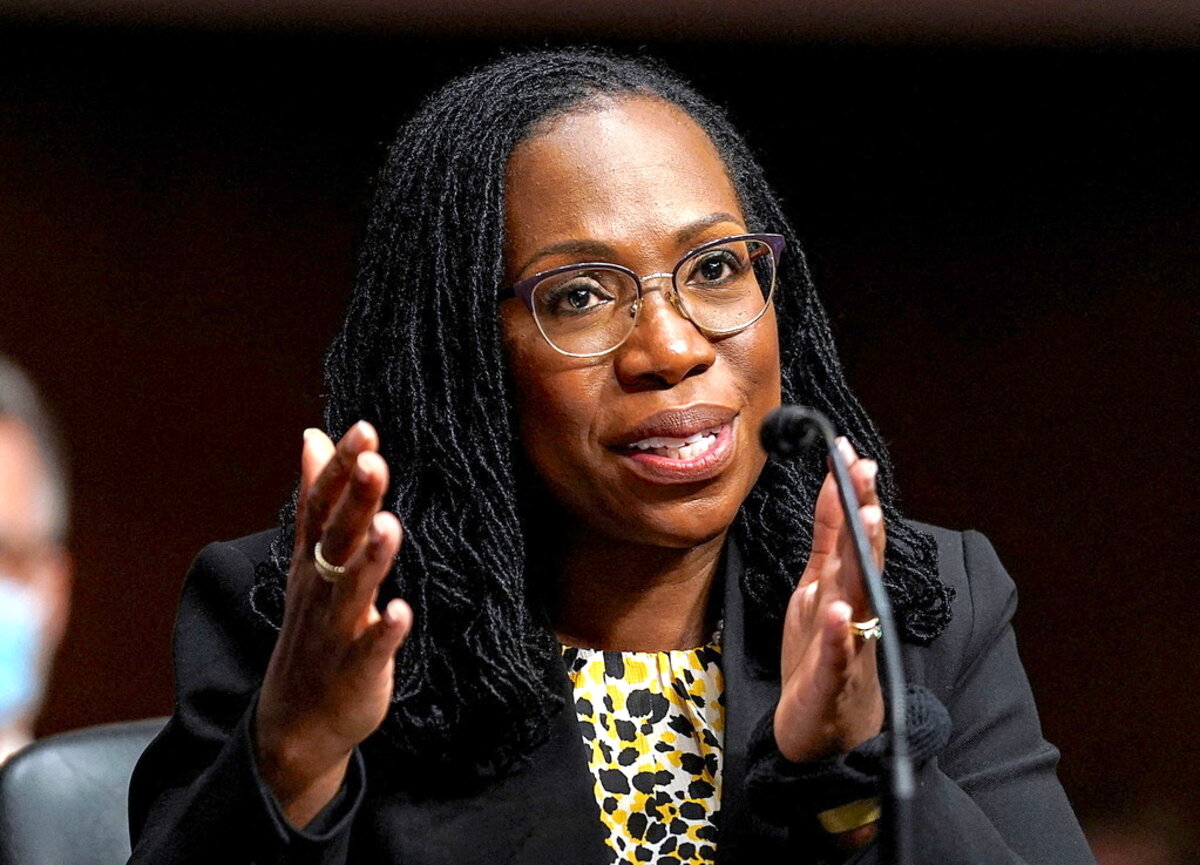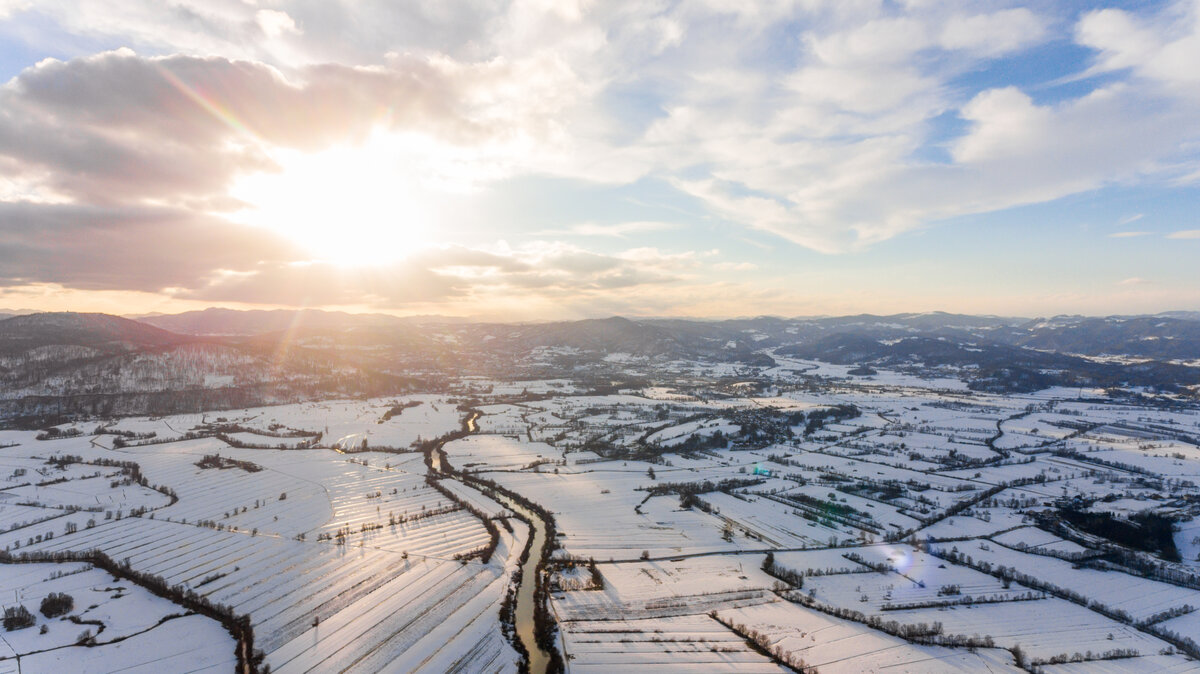Russia’s invasion of Ukraine has shocked Europeans into a new reckoning of what they value and how much they are ready to sacrifice to protect that.
Monitor Daily Podcast
- Follow us:
- Apple Podcasts
- Spotify
- RSS Feed
- Download
 Laurent Belsie
Laurent Belsie
This week we’re answering some questions that are top of mind for many people as they watch the Ukraine invasion. Today, it’s about faith: How do you pray for peace when war has already begun?
I started by asking how Ukrainians themselves are praying. The Rev. Roman Tarnavsky, pastor at St. Andrew Ukrainian Orthodox Church in Boston, says, “We pray to God that gives strength to all Ukrainians. We pray for this identical thing every single Sunday, the morning and evening.”
Indeed, prayers went out throughout the world. From Japan to the Vatican to The First Church of Christ, Scientist, which publishes this newspaper, the United States to Russia itself, the call for prayer has echoed.
“Humanity is not destined for self-destruction,” Catholic Bishop Bernard Taiji Katsuya of Sapporo, Japan, said in a statement last week. “Humanity is worthy of peacefully resolving differences and conflicts.”
On Sunday, Pope Francis addressed the crisis and urged people around the world to make tomorrow, March 2, a day of fasting and prayer for peace in Ukraine. On Friday in Russia, according to Christianity Today, the Associated Russian Union of Christians of Evangelical-Pentecostal Faith (ROSKhVE) put out a statement calling for a divine resolution of the conflict: “God has called us to love [and] the primary values should not be the specific outlines of borders, but human souls.”
One member of ROSKhVE, Victor Sudakov, pastor at New Life Church in Russia’s fourth-largest city, linked to a Change.org petition urging Russians to oppose the war. As of today, it was by far the most popular of Change.org’s 23 #StandWithUkraine petitions.
Nor was the call for prayer limited to religious leaders. In Ohio, Gov. Mike DeWine declared last Sunday an Ohio Day of Prayer and attended a Ukrainian church in a show of solidarity. NBC’s “Saturday Night Live” opened with the Ukrainian Chorus Dumka of New York singing a choral version of “Prayer for Ukraine,” the hymn that concludes services of the Ukrainian Orthodox Church.
“We are very appreciative [for all the support],” Mr. Tarnavksy in Boston told me, “because we are feeling that Ukraine is not alone in this difficult time.”




